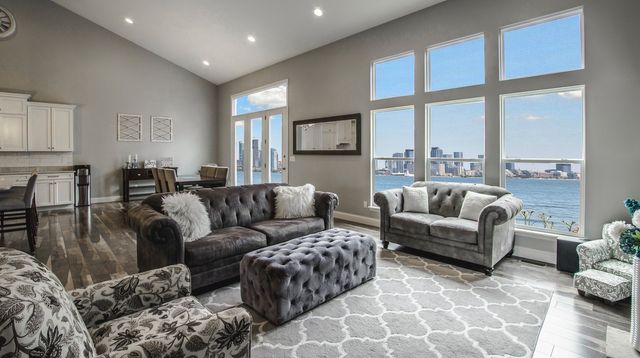How To Make Your Windows Successful In Conditions Of Temperature
As colder weather techniques, property owners feel a various sort of heat-- high energy bills and expensive repair work, often due to damage from wetness in the house.
Typically the offenders mishandle doors and windows that jeopardize the house's "envelope"-- the components and surface areas that together assist control indoor temperatures and provide defense from the aspects.
Any leak in the house's envelope strikes the pocketbook set. Energy lost through windows alone can represent 10 percent to 25 percent of a family's heating costs, according to the U.S. Department of Energy.
" Now is the time to invest a little additional effort inspecting your house to ensure fixtures are in the best possible condition for combating cold, wet weather," stated Joyce Richter, windows expert for Jeld-Wen, a window and door maker. "Search for warping or cracks that indicate repair work or replacements are required."
Jeld-Wen provides these additional suggestions:
* Utilize your senses to detect leakages. Hold a lighted candle near closed doors and windows. You'll see instantly if cold air is infiltrating inside or warm air is leaking out. Feel for cold areas and try to find condensation on cold surfaces. Examine seals and weatherstrips.
* Take advantage of passive solar heating. Usage insulated window coverings and close them at night. Open south-facing window coverings throughout the day.
* Understand how energy efficiency is measured. The most important energy performance score is U-factor. This is the quantity of heat flowing through a window. The lower the number, the more energy-efficient the window is.
* Think about Energy Star-qualified products. Appliances and other family items that have undergone rigorous screening will conserve money on energy costs throughout all seasons. The Epa https://tintahome.com.au/office-window-tinting states that a typical home can save up to 30 percent on energy bills, about $400 each year, by selecting Energy Star-qualified products.

* Research study the new generation of modern building materials. Composite materials, such as energy-efficient fiberglass doors, have become more extensively available to homeowners. These materials secure against the forces of nature that cause the most stress: temperature modifications, extreme storms, wetness and insects.
